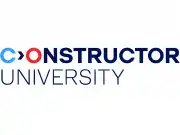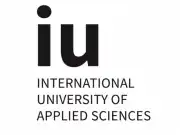Natural and exact sciences programs in Germany
- Overview of Natural and exact sciences programs in Germany
- Features of Natural and exact sciences programs in Germany
- Advantages of Natural and exact sciences programs in Germany
- Disadvantages of Natural and exact sciences programs in Germany
- German universities offering Natural and exact sciences programs
- Admission requirements for Natural and exact sciences programs in Germany
- Documents required for admission to Natural and exact sciences programs in Germany
- Tuition fees for Natural and exact sciences programs in Germany
- Scholarships and grants for Natural and exact sciences programs in Germany
- Career prospects after Natural and exact sciences programs in Germany
- Is it worth studying Natural and exact sciences programs in Germany?
- Frequently Asked Questions

Bachelor of Science - Mathematics
Constructor University - Bremen, GermanyMathematics is the cornerstone of science, with applications in the natural sciences, engineering, economics, finance, and even the social sciences. A bachelor's in math combines intellectual breadth and disciplinary depth.
A bachelor's degree in mathematics qualifies for graduate study…

Bachelor of Science - Chemistry and Biotechnology
Constructor University - Bremen, GermanyChemistry is the scientific study of elements and compounds made up of atoms, molecules, and ions: their composition, structure, behavior, and the changes that occur when they react with other substances. Biotechnology is the application of biology to the solution of real-world problems, with a profit…

Bachelor of Science - Medicinal Chemistry and Chemical Biology
Constructor University - Bremen, GermanyThe global pharmaceutical industry necessitates well-trained scientists with the education and drive to drive innovative drug development. The Medicinal Chemistry and Chemical Biology (MCCB) program puts students at the forefront of these efforts by providing a fundamental understanding of drug-body…

Bachelor of Science - Earth Sciences and Sustainable Management of Environmental Resources
Constructor University - Bremen, GermanyConstructor University's BSc in Earth Sciences and Sustainable Management of Environmental Resources emphasizes Earth-surface phenomena and processes in an interdisciplinary science degree. Our pupils learn about the biosphere, atmosphere, oceans, land masses, and human impact on the Earth's surface.…

Bachelor of Science - Physics
Constructor University - Bremen, GermanyBy investigating the fundamental notions of space, time, and matter, physics has altered our understanding of the cosmos. Physics is not only the basis for the other natural sciences and many technical fields, but it is also an essential component of modern technology.
The physics major…

Bachelor of Science - Physics and Data Science
Constructor University - Bremen, GermanyPhysics has helped us understand the universe and the surroundings by studying space, time, and matter. Physics underpins several engineering disciplines and other natural sciences, as well as global positioning systems, lasers, and transistors. Addressing global concerns like renewable energy, e-mobility,…

Bachelor - Industrial and Organizational Psychology
IU International University of Applied SciencesIndustrial engineering has entered a revolutionary new phase, with smart technologies increasingly being put to use in manufacturing plants and supply chains across the globe. There is a huge demand for qualified engineers who are specialised in ‘Industry 4.0’ and related fields.
The IU…
Overview of Natural and exact sciences programs in Germany
Germany is one of the flagship countries of scientific and technological progress in Europe. Here, cutting-edge technologies are developed, environmental initiatives are advanced, and world-class fundamental and applied research is conducted. This is why studying natural and exact sciences in Germany is considered not only prestigious but also a promising choice for international students.
Natural sciences include disciplines such as biology, ecology, geography, chemistry, physics, and earth sciences. Exact sciences encompass mathematics, statistics, computer science, mechanics, and astronomy. All these fields in Germany develop at the intersection of theory and practice, with active support from state and private research institutes as well as the industrial sector.
The programs are designed considering labor market requirements and global scientific challenges - from climate change to biotechnologies. This is why tens of thousands of students from around the world strive to enroll in German universities in these fields every year.
Features of Natural and exact sciences programs in Germany
The German education system has its unique features, especially in the field of natural and exact sciences. The main distinction is the emphasis on applied approach, scientific precision, and interdisciplinary collaboration.
What makes these programs particularly attractive:
- Early involvement in science. Already at the bachelor's level, students work in laboratories, participate in joint projects with companies and research centers. At the master's and doctoral levels - full-fledged research activities with opportunities for publications and conference participation.
- International orientation. Many programs are internationally accredited, and teaching is often conducted in English. Universities also participate in exchange programs like Erasmus+ and Horizon Europe.
- Modern infrastructure. Well-equipped laboratories, access to unique scientific databases, digital resources, and industrial partners.
- Freedom of choice and specialization. Students can customize their academic path by choosing specializations, modules, and research directions.
- Dual degree opportunities. Many universities collaborate with institutions in France, Netherlands, Austria and other countries, offering joint degree programs.
Advantages of Natural and exact sciences programs in Germany
Enrolling in a German university for natural and exact sciences is an investment not only in education but also in a successful professional future. Here are the key advantages:
- No tuition fees at public universities. For most bachelor's and master's programs, including those open to international students, there is no tuition fee - only a small semester contribution.
- Strong scientific foundation. Germany ranks among the top three countries in the number of scientific publications and patents in natural and technical sciences.
- High teaching standards. Many instructors combine university teaching with research at internationally recognized institutions like Max Planck, Leibniz, and others.
- Career orientation. Programs include internships, practical training, and preparation for work in R&D departments of major companies.
- Safe, comfortable, and multicultural environment. Germany offers political stability, good infrastructure, and vibrant student life.
Disadvantages of Natural and exact sciences programs in Germany
Like any serious education, programs in Germany can be challenging - especially at the initial stage. Here are the most common difficulties international students face:
Language Barrier
Even if the program is in English, life outside campus (doctors, housing rental, bureaucracy) requires knowledge of German.
What to do: start learning the language as early as possible, use free or low-cost university courses, and communicate with locals.
Academic Workload and Self-Discipline
Programs often require high independence. There are no daily checks, but there are complex tasks and large volumes of literature.
What to do: organize a clear study schedule, use libraries, take notes, participate in peer support groups.
Cultural Adaptation
The German system may seem "dry" - professors expect initiative from students.
What to do: be active, ask questions, participate in seminars. Germans value discipline but also respect independence.
German universities offering Natural and exact sciences programs
Below is a list of prestigious universities known for strong programs in natural & exact sciences:
| University | City | Specializations |
|---|---|---|
| LMU Munich | Munich | Biology, physics, mathematics |
| TU Munich (TUM) | Munich | Computer science, chemistry, engineering |
| Heidelberg University | Heidelberg | Medicine, neuroscience, ecology |
| RWTH Aachen | Aachen | Exact sciences, mechatronics, robotics |
| TU Dresden | Dresden | Nanotechnology, mathematics, chemistry |
| University of Freiburg | Freiburg | Physics, forestry, biotechnology |
These universities are part of the prestigious Excellence Initiative and participate in cutting-edge scientific developments.
Admission requirements for Natural and exact sciences programs in Germany
Admission conditions vary, but there are general requirements:
- Academic qualifications comparable to German Abitur (for bachelor's) or bachelor's diploma (for master's).
- Language certificate - TestDaF, DSH (for German-taught programs) or IELTS, TOEFL (for English-taught).
- High proficiency in core subjects - often requires providing a list of completed courses, exams, projects.
- Motivation letter, CV, and in some cases - research portfolio or participation in olympiads.
Documents required for admission to Natural and exact sciences programs in Germany
The following documents are needed for application:
- Certified copies of diploma/certificate with translation;
- Transcript of records;
- Language certificates;
- Passport;
- CV (academic style resume);
- Motivation letter (1-2 pages);
- Recommendation letters (especially important for master's and PhD);
- Proof of participation in courses/olympiads (if available);
- Some universities require entrance exams or interviews.
Tuition fees for Natural and exact sciences programs in Germany
No tuition fees at public universities. But students must pay a semester fee, which amounts to:
- €250-350 per semester, depending on the state and university. This includes public transport pass, access to cafeterias, libraries and student organizations.
Approximate monthly expenses:
| Item | Amount (€) |
|---|---|
| Housing | 350–500 |
| Food | 200–250 |
| Insurance | 100 |
| Transport and miscellaneous | 150 |
| Total | 800–1000 per month |
Scholarships and grants for Natural and exact sciences programs in Germany
International students can apply for the following forms of support:
- DAAD (German Academic Exchange Service): offers full and partial scholarships for students at all levels.
- Deutschlandstipendium: €300 monthly, awarded for outstanding academic performance.
- Erasmus+: scholarships for semester exchange or internships at other EU universities.
- Political party foundations: e.g., Konrad-Adenauer-Stiftung, Heinrich Böll Stiftung.
- University scholarships: local grants and support from alumni funds and research projects.
Career prospects after Natural and exact sciences programs in Germany
Graduates of these programs are in demand in Germany and worldwide. Possible career paths:
- R&D in international companies - BASF, Siemens, Bayer, SAP;
- Pharmaceuticals and biotechnology;
- Research institutes - Fraunhofer, Helmholtz, Max Planck;
- IT and engineering - especially for specialists in computer science, mechatronics, data analytics;
- Academic career - teaching and research at universities.
Average starting salary after STEM programs in Germany: from €45,000 per year, and with experience - up to €70,000 and above.
Is it worth studying Natural and exact sciences programs in Germany?
Absolutely yes. Studying in Germany is not just about a prestigious diploma, but a real opportunity to build a career in science, technology, engineering and medicine. Germany creates all conditions: from free education to international connections and employment opportunities. This is a practical, logical and forward-looking choice for both students and their parents.
Frequently Asked Questions
1. Can I study without knowing German?
Yes, if the program is in English. But knowing German expands social and career opportunities.
2. How many years for bachelor's/master's?
Bachelor's - typically 3 years (6 semesters), master's - 1-2 years (2-4 semesters).
3. How to get my diploma recognized?
Through uni-assist platform or directly at the university. It's better to apply 6-8 months before studies begin.
4. Can I stay to work after graduation?
Yes, international graduates can get an 18-month job search visa.
5. Are there age restrictions?
Formally - no. The main thing is meeting academic requirements and demonstrating motivation.